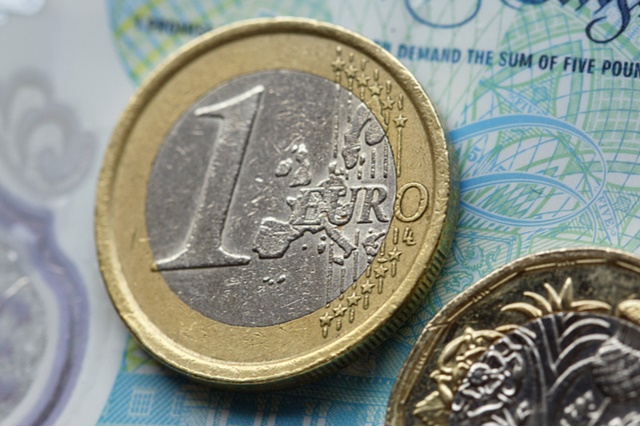GBP/EUR exchange rate muted following underwhelming UK GDP
The pound euro (GBP/EUR) exchange rate is trapped in a narrow range this morning despite the publication of some weaker-than-expected UK GDP data, as markets await the publication of Germany’s latest inflation reading.
At the time of writing the GBP/EUR exchange rate is trading at around €1.1977, virtually unchanged from this morning’s opening rate.
Euro (EUR) to slump following German inflation?
The euro (EUR) is trading in a wide range against its peers this morning, up against several of its counterparts but muted elsewhere, as EUR investors await the publication of Germany’s latest consumer price index (CPI).
Following Friday’s lacklustre inflation readings from both Spain and France, which confirmed a slowdown in both countries respective inflation prints, the publication of Germany’s upcoming CPI print could infuse further volatility into the euro should the data follow suit as forecast.
Inflation in the Eurozone’s largest economy is forecast to drop just below the European Central Banks (ECB) 2% target, expected to reach 1.9% this month.
Should the data mirror expectations and confirm that inflation in Germany fell below 2%, this will likely further bolster ECB rate cut speculation and in turn undermine the common currency in the second half of today’s European session.
Pound (GBP) to firm following PMI?
The pound (GBP) is managing to hold steady against the majority of its peers this morning despite the publication of some underwhelming domestic GDP data.
This morning, the UK published its finalised GDP print for the second quarter of 2024, which saw the Office for National Statistics (ONS) confirm that the index dropped from 0.6% to 0.5% in the three months from April to June.
However, the weaker-than-expected growth reading has seen Sterling mostly unchanged against its peers, as although the latest reading cooled more than expected, it still signified modest growth levels and a decent recovery from the UK’s shallow recession at the end of last year.
Looking forward, tomorrow will see the publication of the UK’s latest manufacturing PMI reading for September, which could see GBP firm against its peers.
Again, although the data is forecast to dip from its original estimate, September’s finalised index is forecast to remain firmly in expansion territory (a reading above 50) and therefore could offer GBP exchange rates some modest support should the data print as expected.


Comments are closed.